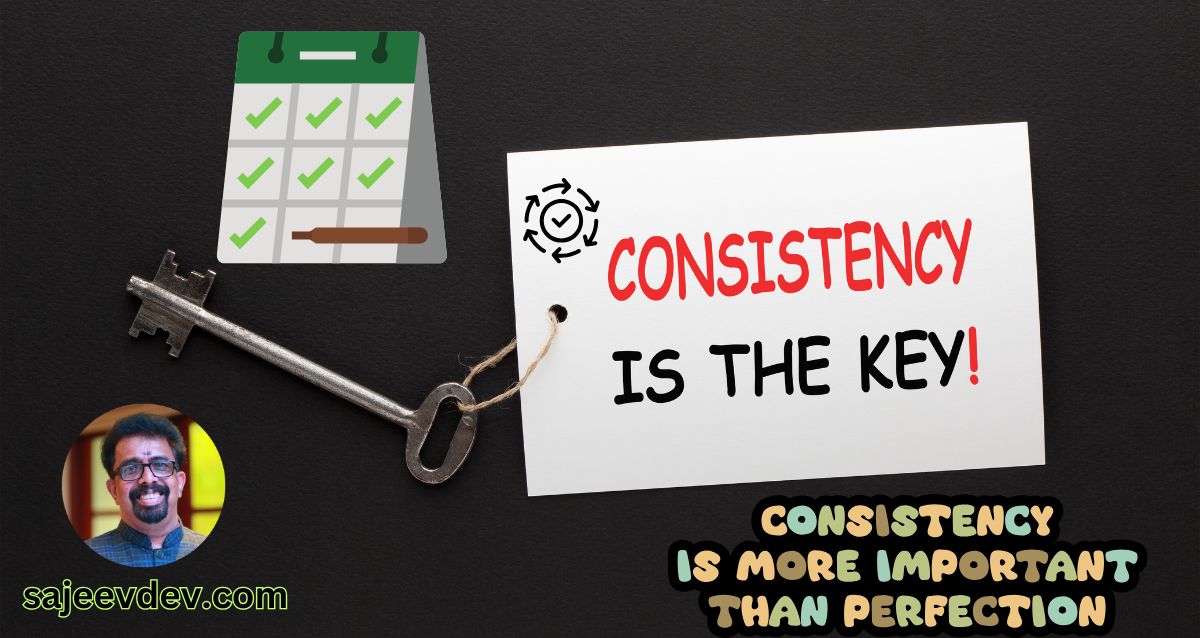Continuous Progress
Continuous progress is a concept that emphasizes the importance of consistent and incremental improvement over time. Unlike sporadic efforts, which may involve bursts of activity followed by stagnation, continuous progress advocates for a steady, ongoing commitment to growth and development. This approach recognizes that success is not merely a destination but a journey characterized by relentless efforts toward betterment.
Embracing continuous progress entails nurturing a progressive mindset, one that values persistence and adaptability. It involves acknowledging that setbacks may occur along the path to achievement, but these challenges can be leveraged as learning experiences. By focusing on small, manageable goals, individuals can maintain motivation and build confidence as they witness their own development unfold. This process encourages individuals to celebrate their victories, regardless of size, fostering a positive feedback loop that bolsters their drive to pursue further advancement.
In both personal and professional spheres, the significance of adopting continuous progress cannot be overstated. In the corporate world, organizations that prioritize continuous improvement often enjoy a competitive edge, as their processes become more efficient, innovative, and responsive to market demands. On an individual level, those who commit to lifelong learning and development are more likely to adapt to changes in their environment, ensuring they remain relevant and successful.
As we delve deeper into the principles and practices of continuous progress in subsequent sections, it is essential to recognize its integral role in achieving outrageous success. By fostering a culture of ongoing improvement, individuals and organizations alike can unlock new levels of potential and performance, thus paving the way for remarkable achievements in every endeavor.
Understanding Outrageous Success
The term “outrageous success” encapsulates a level of achievement that transcends conventional standards, characterized by extraordinary results that are often deemed exceptional or remarkable. At an individual level, outrageous success may manifest as a person reaching unparalleled heights in their career, effectively innovating within their field, or attaining financial abundance that allows for greater freedom and opportunity. It is not merely about accumulating wealth or accolades but instead about realizing one’s fullest potential and making a significant impact in their respective domain. Individuals who achieve this level often display unique traits, such as resilience, creativity, and a relentless drive for improvement.
Organizations, too, can exemplify outrageous success. This could be reflected in a company that redefines industry standards, significantly impacts its market, or cultivates an outstanding company culture that nurtures talent and inspires employees. A prime example is Apple Inc., which has consistently delivered groundbreaking technology that has transformed everyday communication and personal computing. The brand’s commitment to innovation, customer experience, and quality has solidified its position as a market leader, demonstrating how strategic vision and execution can result in extraordinary success.
Another noteworthy instance is Elon Musk’s Tesla, which has disrupted the automotive industry by pioneering electric vehicles that have garnered widespread acclaim and generated a global shift toward sustainable energy. Tesla’s focus on innovation, environmental responsibility, and consumer engagement is a testament to the power of outrageous success in transforming industries. These examples highlight that the pursuit of outrageous success requires not only ambition and vision but also the capacity to navigate challenges and adapt proactively to changing circumstances.
In essence, understanding outrageous success involves recognizing that it is a multifaceted concept. It is about pushing boundaries, challenging norms, and striving for excellence in whatever undertaking one pursues, whether as an individual or an organization.
The Role of Mindset in Progress
The concept of mindset plays a critical role in the journey of continuous progress. Central to this idea are the terms “growth mindset” and “fixed mindset,” originally conceptualized by psychologist Carol Dweck. A growth mindset refers to the belief that abilities and intelligence can be developed through dedication, effort, and learning. In contrast, a fixed mindset embodies the belief that capabilities are static and unchangeable.
Individuals with a growth mindset are typically more open to embracing challenges rather than avoiding them. They view setbacks as opportunities for learning and improvement, thus fostering an environment where progress becomes a natural outcome. This perspective enables them to seek out feedback actively and reflect on their experiences, fostering resilience and adaptability—qualities essential for overcoming obstacles on the path to success. Conversely, those with a fixed mindset may shy away from challenges, fearing failure and perceiving it as a reflection of their personal inadequacies. This can hinder their growth, stifling continuous improvement and limiting their potential.
To cultivate a growth mindset, individuals can implement several strategies. Firstly, embracing challenges as learning opportunities rather than threats can significantly alter one’s perception of difficulty. Secondly, practicing self-reflection encourages an awareness of one’s learning process, allowing for adjustments and enhancements in future endeavors. Additionally, setting realistic, achievable goals can provide motivation and a sense of accomplishment, further reinforcing a progressive outlook.
Moreover, surrounding oneself with individuals who possess a growth mindset can create a supportive community that encourages risk-taking and innovation. This collective environment promotes a shared belief in improvement and can lead to synergy, enhancing the ability to progress continuously on both personal and professional fronts.
Creating a Progress-Oriented Plan
To achieve outrageous success, establishing a progress-oriented plan is essential. This plan should be crafted with specific, measurable, achievable, relevant, and time-bound (SMART) goals. Setting SMART goals acts as a foundational framework that not only clarifies objectives but also outlines the steps required to reach them. Each goal should address a particular aspect of your overarching aspirations, ensuring that every action taken moves you closer to your ultimate vision.
Once the SMART goals are set, it is crucial to identify key milestones along the path to success. Milestones serve as notable checkpoints that allow for reflection and reassessment of the progress made. These are tangible indicators that can help maintain motivation and momentum throughout the journey. By celebrating these milestones as they are reached, individuals can cultivate a sense of accomplishment, further fueling the desire to continue moving forward.
In addition to goal setting and milestone identification, employing metrics for measuring progress is imperative. Regularly tracking performance provides valuable insights into how effectively strategies are being executed and where adjustments may be necessary. Metrics can be customized based on the nature of the goals, ranging from quantifiable outcomes to qualitative assessments. This reflective practice not only enhances accountability but also fosters a culture of continuous improvement.
Moreover, a progress-oriented plan should not remain static. It is vital to revisit and revise the plan regularly to ensure alignment with both external and internal changes. As circumstances evolve, so too should the strategies for achieving success. By maintaining flexibility and adaptability within the plan, individuals and organizations can navigate obstacles more effectively, affirming their commitment to continuous progress.
The Power of Consistency
Consistency is often heralded as a fundamental principle in the pursuit of success. It is the enduring commitment to maintaining actions and habits over time that plays a pivotal role in achieving significant breakthroughs. Rather than relying solely on sporadic bursts of motivation or unique insights, the cumulative effect of small, consistent actions can lead to substantial progress. In essence, achieving outrageous success is less about making grand gestures and more about the daily discipline of showing up and doing the work.
The significance of consistency becomes apparent when one considers the concept of compounding. Just as compound interest multiplies wealth over time, consistent efforts build growth in a similar fashion. Each small, deliberate action contributes to a larger goal, creating a momentum that can propel an individual toward unprecedented achievements. This does not merely apply to financial success but extends across various domains, including personal development, skill acquisition, and professional advancement.
Maintaining consistency, however, can be challenging, especially during periods of low motivation. It is essential to cultivate strategies that reinforce commitment despite fluctuating enthusiasm. One practical tip is to establish a routine that integrates specific actions into daily life, thereby removing the reliance on motivation. Setting realistic goals can also ease the burden of pressure, fostering a sense of accomplishment that encourages ongoing commitment.
Moreover, tracking progress with journals or digital tools can provide tangible evidence of growth, further motivating individuals to maintain their consistency. Engaging with accountability partners or communities can enrich this process by creating a support system conducive to perseverance. Ultimately, embracing the power of consistency not only enhances the likelihood of reaching one’s goals but also instills valuable lessons in resilience and dedication throughout the journey.
Learning from Failure as a Catalyst for Progress
Failure is often perceived as a barrier to success; however, it can serve as a powerful catalyst for progress. Embracing failure allows individuals to reevaluate their approaches and develop a mindset that views setbacks not as insurmountable obstacles but as valuable learning opportunities. Many successful figures have experienced significant failures, yet it is their ability to extract lessons from these experiences that has propelled them toward greater accomplishments.
Consider the story of Thomas Edison, who famously stated, “I have not failed. I’ve just found 10,000 ways that won’t work.” This perspective underscores the importance of resilience and a willingness to embrace failure as part of the innovative process. For Edison, each setback brought him closer to discovering the electric light bulb. His journey illustrates that understanding failure is crucial; by analyzing what went wrong and adjusting strategies accordingly, individuals can create a pathway to success.
Moreover, reframing failure involves a shift in mindset from one of defeat to one of growth. Emphasizing self-compassion can be beneficial, as it allows individuals to forgive themselves for missteps and to remain motivated in the pursuit of their goals. This shift can be further enhanced through reflective practices, such as journaling or engaging with mentors who can provide constructive feedback. By embracing a culture that values learning over perfection, individuals cultivate an environment where innovative thinking can flourish.
Ultimately, the journey of progress is rarely linear. By acknowledging that failure is a crucial aspect of the learning process, individuals can leverage their experiences to build resilience and refine their strategies. Accepting failure as an integral part of success encourages individuals to take risks, push boundaries, and ultimately, achieve their highest potential.
The Importance of Feedback and Adaptability
Feedback plays a crucial role in the journey of continuous progress, serving as a vital tool for personal and professional growth. It offers individuals an opportunity to gain insights into their performance, identify areas for improvement, and refine their skills. Constructive criticism is a valuable asset in this process, as it provides specific guidance that encourages individuals to acknowledge their strengths and weaknesses. To effectively seek feedback, one can employ several strategies, including actively soliciting opinions from peers, mentors, or supervisors. Engaging in regular check-ins and open discussions fosters an atmosphere in which feedback is not only acceptable but encouraged.
Adaptability is equally important in maintaining continuous improvement. The ability to adjust one’s actions and strategies in response to changing circumstances is a hallmark of successful individuals and organizations. In today’s fast-paced environment, challenges and opportunities arise unexpectedly. Those who can pivot and embrace new information or feedback often find themselves at a distinct advantage. For example, when Netflix transitioned from a DVD rental service to a streaming platform, the company’s willingness to adapt to technological advancements and consumer demands marked a significant turning point in its success. This ability to recognize the need for change and execute it effectively is a critical component of ongoing progress.
Moreover, embracing a mindset of growth enables individuals to view feedback and adaptability not as setbacks, but rather as stepping stones toward achieving their goals. Being open to change and willing to act upon feedback cultivates resilience, allowing one to navigate the often unpredictable landscape of personal and career development. Incorporating these practices into daily routines not only enhances performance but also fosters a culture where continuous learning and improvement thrive. Ultimately, the synergy between feedback and adaptability lays a strong foundation for sustained success.
Building a Support System for Continuous Progress
Creating a robust support system is paramount for individuals striving to achieve continuous progress in their personal and professional lives. Surrounding oneself with supportive individuals can significantly enhance motivation and provide accountability, both of which are crucial for ongoing development. Seeking out mentors and coaches who are experienced in your field can be particularly beneficial. These professionals not only provide guidance but also serve as catalysts for growth, helping to identify strengths and areas for improvement.
Mentorship can take various forms, from formal arrangements to informal relationships. The key is to find a mentor who resonates with your goals and values. This alignment fosters a nurturing environment where advice and insights are freely shared. Coaches, on the other hand, often provide structured programs tailored to specific objectives, pushing individuals towards measurable outcomes. Their role in implementing strategies that lead to continuous progress cannot be understated, as they help in developing the necessary skills and frameworks for success.
In addition to mentors and coaches, being part of a positive community can greatly amplify personal growth. Engaging with like-minded peers creates an atmosphere of encouragement and support, allowing for the exchange of ideas and collaborative learning. This sense of community instills accountability, as members uplift each other in their journey towards continuous progress. Consider participating in networking events, workshops, or online forums that align with your interests to connect with individuals who share your ambitions.
Ultimately, building a support system requires intentionality and openness to forming new relationships. By actively seeking out mentors, coaches, and communities that inspire growth, individuals can craft an environment conducive to continuous progress. Such networks not only motivate but also hold individuals accountable for their commitments, thus propelling them towards achieving their goals.
The Journey of Continuous Progress
In reviewing the critical components that lead to outrageous success, it becomes clear that this success is not a final destination but rather an ongoing journey defined by continuous progress. Each step taken towards improvement is essential, as it builds upon previous achievements and lays the groundwork for future endeavors. This perspective shifts the focus from merely striving for an endpoint to embracing the process of growth itself, which is pivotal in achieving one’s personal definition of success.
The discussions throughout this article emphasize the importance of adopting a mindset that values learning and development. By committing to continuous progress, individuals can cultivate resilience and adaptability, key traits required in an ever-evolving world. Embracing challenges and treating them as opportunities for growth is fundamental in this journey. Each obstacle faced provides invaluable lessons, encouraging learners to refine their skills and approaches.
Moreover, integrating consistent feedback mechanisms plays a crucial role in this framework. Engaging in self-reflection and seeking external input enables one to identify areas for improvement and adjust strategies accordingly. This practice not only promotes personal development but also fuels collective advancement when shared within teams or communities. As success is often defined by collaborative efforts, nurturing an environment that prioritizes continuous progress can lead to remarkable outcomes.
Ultimately, outrageous success is a dynamic process shaped by an unwavering commitment to progress. As readers reflect on their paths, it is vital to recognize that every step, no matter how small, contributes to the greater journey. By harnessing the power of continuous improvement, individuals can unlock their potential and navigate towards their unique versions of success with confidence and purpose.



